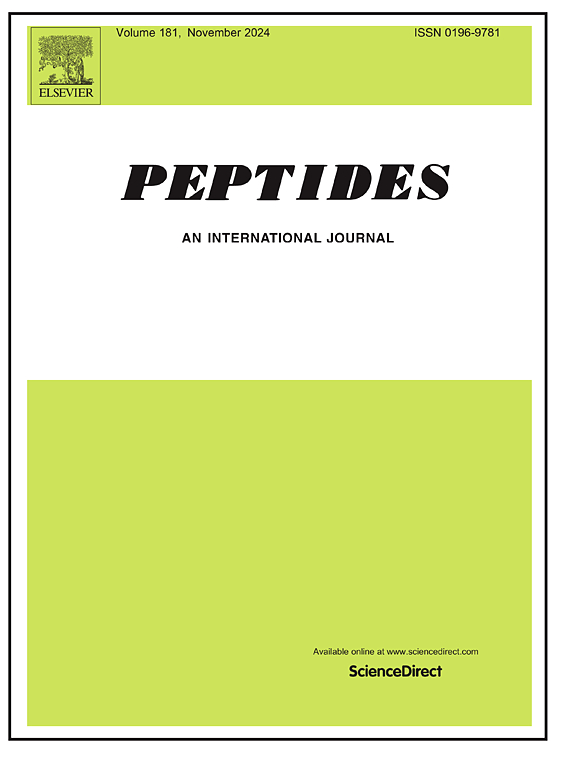Ghrelin/GHSR-1a promotes angiogenesis after myocardial infarction through the glycolytic process
IF 2.9
4区 医学
Q3 BIOCHEMISTRY & MOLECULAR BIOLOGY
引用次数: 0
Abstract
Background
Therapeutic angiogenesis has demonstrated efficacy in revascularizing ischemic heart tissue and reducing the progression of cardiac remodeling following myocardial infarction. Recent studies have highlighted the significance of the glycolytic process in maintaining endothelial cell function and cardiac homeostasis. However, the specific role of glycolysis in angiogenesis post-myocardial infarction remains poorly understood. This study aims to explore whether ghrelin/GHSR-1a promotes angiogenesis after myocardial infarction through glycolysis.
Methods and results
Myocardial infarction was induced in mice, and our experiments showed that GHSR-1a overexpression led to a significant increase in the density of α-SMA-positive vessels in the peri-infarct zones, compared to the MI group, at day 7 post-infarction. Furthermore, elevated FGF-21 levels were observed in the border zone of the infarcted area seven days post-acute myocardial infarction. We also identified a modified GHSR-1a/FGF-21 axis in cardiac endothelial cells, where GHSR-1a knockdown reduced the expression of both FGF-21 and AMPK. In vitro, ghrelin enhanced glycolytic activity by increasing the expression of glycolytic enzymes. Moreover, ghrelin significantly stimulated endothelial tube formation and enhanced cell viability; however, these effects were attenuated following FGF-21 knockdown.
Conclusion
Our findings demonstrate that ghrelin/GHSR-1a improves neovascularization and enhances glycolysis in cardiac endothelial cells by modulating FGF-21. These results lay the groundwork for further experimental and clinical investigations to explore pharmaceutical approaches for treating ischemic heart disease.
Ghrelin/GHSR-1a通过糖酵解过程促进心肌梗死后血管生成
研究背景:治疗性血管生成在缺血心脏组织血运重建和减少心肌梗死后心脏重构进展方面已被证明有效。最近的研究强调了糖酵解过程在维持内皮细胞功能和心脏稳态中的重要性。然而,糖酵解在心肌梗死后血管生成中的具体作用仍然知之甚少。本研究旨在探讨ghrelin/GHSR-1a是否通过糖酵解促进心肌梗死后血管生成。方法和结果小鼠心肌梗死后第7天,与心肌梗死组相比,GHSR-1a过表达导致梗死周围α- sma阳性血管密度显著增加。此外,急性心肌梗死后7天,在梗死区边界区观察到FGF-21水平升高。我们还在心脏内皮细胞中发现了一个修饰的GHSR-1a/FGF-21轴,其中GHSR-1a敲低降低了FGF-21和AMPK的表达。在体外,胃饥饿素通过增加糖酵解酶的表达来增强糖酵解活性。此外,胃饥饿素显著刺激内皮管形成,提高细胞活力;然而,FGF-21敲除后,这些作用减弱。结论ghrelin/GHSR-1a通过调节FGF-21促进心脏内皮细胞新生血管和糖酵解。这些结果为进一步的实验和临床研究探索治疗缺血性心脏病的药物途径奠定了基础。
本文章由计算机程序翻译,如有差异,请以英文原文为准。
求助全文
约1分钟内获得全文
求助全文
来源期刊

Peptides
医学-生化与分子生物学
CiteScore
6.40
自引率
6.70%
发文量
130
审稿时长
28 days
期刊介绍:
Peptides is an international journal presenting original contributions on the biochemistry, physiology and pharmacology of biological active peptides, as well as their functions that relate to gastroenterology, endocrinology, and behavioral effects.
Peptides emphasizes all aspects of high profile peptide research in mammals and non-mammalian vertebrates. Special consideration can be given to plants and invertebrates. Submission of articles with clinical relevance is particularly encouraged.
 求助内容:
求助内容: 应助结果提醒方式:
应助结果提醒方式:


